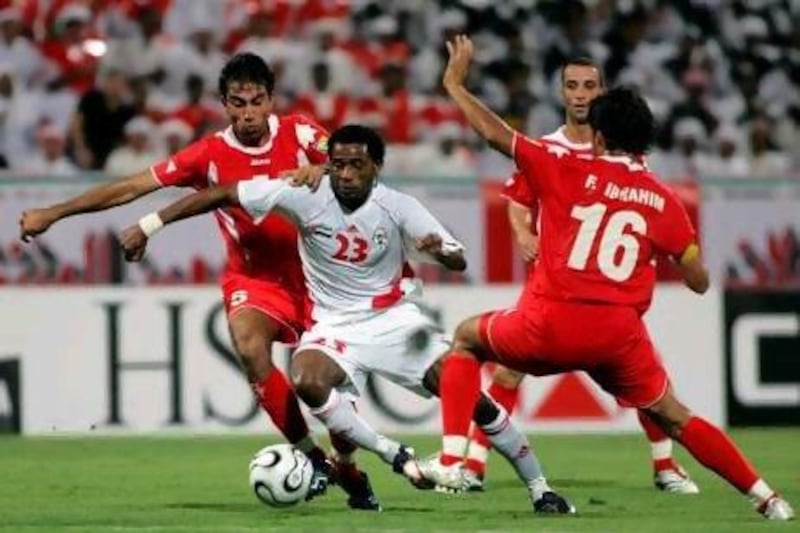DUBAI // The sight of Fabrice Muamba lying motionless on the pitch brought back painful memories of a tragedy that changed the face of medical care in UAE football.
Salem Saad, the Al Nasr player, collapsed during a training session on November 18, 2009, following a massive heart attack. He was taken to the nearby Rashid Hospital in Dubai, where he died in the intensive care centre.
The death of the 31 year old led to the formation of a Sports Medicine Committee by the Dubai Health Authority (DHA) and the Dubai Sports Council (DSC), with the aim of improving medical care at sports clubs and tournaments to preventing similar fatalities.
"The death of this player was one of the tragic things that makes this so important," Dr Ramadan Ibrahim, the DHA's director of health regulation, said at the time. "The clubs are expanding, their player numbers are increasing and [things are] changing, so now we need to ... [know] what's happening [in the field of sports medicine]."
The committee has since upgraded medical clinics at all clubs to ensure they have the necessary facilities and expertise in place to care for their players. The committee sets regulations and criteria for the medical staff at the clubs, reviewing all medical reports before the start of each season and, together with DHA, implement training programmes for the clubs' medical and technical staff.
They regularly meet medical staff of the clubs, the Dubai Corporation for Ambulance Services and the USA Cardiac Association.
They have also emphasised the need to have personnel qualified in cardiopulmonary resuscitation on hand even during training sessions at the clubs. And two ambulances have to be present at every Pro League or Football Association match, along with qualified medical professionals.
"We have very good medical facilities, fully equipped ambulance and medical staff present at the stadium at every game," Khaled Awadh, the deputy chief executive of Al Wahda, said.
"It is a requirement of the FA's competition committee and on our side, we ensure all this stuff and the staff is readily available in case of any emergencies. We also try to upgrade them whenever new technologies are introduced."
Every club affiliated to the Football Association are required to have a medical unit, which includes doctors, physiotherapists, trainers and massage therapists. They medically evaluate the players before the start of every season, measuring the aerobic and anaerobic capacity of each player and testing their hearts.
The players also have to answer a medical history questionnaire, which covers subjects ranging from chronic injuries, cardiac arrests and muscular injuries to lifestyle, stress and anger management.
Awadh acknowledges it is still difficult to legislate for tragedies such as Saad and Muamba.
"It is very unfortunate incident," Awadh said. "The medical staff at the stadium had done everything possible, but sometimes such matters are beyond their control. I am sure Fabrice would have passed his health test as required by any professional athlete, but sometimes it is not just in our hands. We can only pray and wish he will recover."





